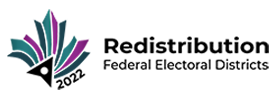Conclusion – British Columbia
The Commission believes that the result described in this Report is an electoral map for British Columbia that provides for effective representation for each of the 43 electoral districts. This Report contains the Commission's configuration of these districts. The Commission has reached its conclusions with the assistance of the residents of British Columbia who participated in its public process. While not all ideas presented are found in this Report, many are, and all have been considered. The public input has greatly influenced the configurations for the entire province.
In the course of the public process, certain themes emerged. The Commission was asked why changes should be made to correspond more closely to British Columbia's electoral quota when, by any measure, that quota is significantly greater than the quota in most other provinces of Canada. While this question is not within the Commission's remit, the question was posed seriously by residents interested in Canada's democracy, and the Commission considers that it would be remiss not to draw this to the attention of Parliament.
The Commission also heard doubts expressed as to the accuracy of the census. These doubts came from both sparsely populated, rural parts of British Columbia, where Internet access is neither widely available nor routinely accessible in public venues, and urban areas of dense population. The Commission refers to these doubts only for future consideration in the census system's navigation of technological change, adaptation to immigration patterns, and communication with British Columbia's rural residents, including the province's Indigenous communities.
The Commission's work has been conducted in the aftermath of devastating fires and floods in various regions of British Columbia. Participants in the hearings commented on the high quality of representation provided by their Members of Parliament throughout these events. It is apparent that such calamities deflect from the Members' regular duties, given the resources they have available. The Commission respectfully recommends that Parliament review the resources available to the Members to meet such local demands.
The Commission reports that the lively public input that it received has been of great value to its work. The public collaboration at public hearings increased the Commission's understanding of local considerations far beyond the text of the submissions. The Commission is appreciative of the participants who devoted their thought and energy to this process of Canadian democracy, and expresses its gratitude for their engagement.
Respectfully submitted this 7th day of February 2023.
The Honourable Justice Mary E. Saunders,
Chair
R. Kenneth Carty,
Member
Stewart Ladyman,
Member
Federal Electoral Boundaries Commission for the Province of British Columbia
